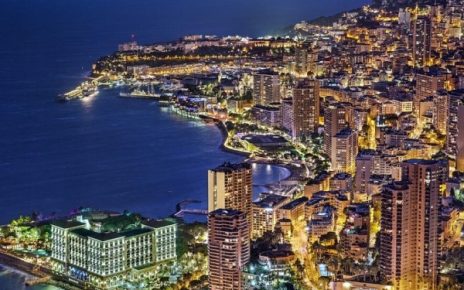Envisioning Tourism in 2030 & Beyond is a new report urging tourism and transportation to take full account of greenhouse gas emissions.
In so doing, this could mean:
- more governments including international aviation emissions in their Paris Agreement plans;
- tourist boards and travel companies targeting a greater proportion of short-haul customers and bringing net zero products to market;
- investing in greener forms of transport which are adopted and promoted by the travel industry;
- relying less on offsetting as a “sticking plaster” solution, focusing instead on decarbonization;
- fair policies that allow for differences in destinations around the world;
- slowing the expected rapid growth in aviation, with limits on the number of long-haul flights.
The report, published by the Travel Foundation with the Centre of Expertise in Leisure, Tourism and Hospitality, Breda University of Applied Sciences, the European Tourism Futures Institute, and the Netherlands Board of Tourism and Conventions, models the impact of different interventions. This includes technological advances, electrification, and alternative fuels. The report shows these could have the greatest impact on reducing CO2 in the decades ahead. The aim of the report is to provide signatories of the global initiative, the Glasgow Declaration on Climate Action in Tourism, with a positive vision of tourism which achieves net zero by 2050.
The researchers describe a global scenario where the shape of tourism shifts, as future growth comes from the areas of tourism most ready to decarbonize. For instance, a traveler might take the same number or more trips a year, but they will typically be traveling shorter distances, opening up opportunities for businesses to target closer-proximity travelers. As well as flying, they will use more rail, electric car, coach and ferry options for their holidays. Those who travel long-haul will take fewer long-distance trips but are more likely to stay longer, in energy efficient accommodation.
Chief among the report’s recommendations is the need to include all emissions in tourism’s decarbonization efforts. With few exceptions, international aviation emissions are not included in national Paris Agreement commitments, which distorts decision-making and disincentivizes investment in the most effective solutions. The report also calls for a global plan to optimize tourism’s growth and distribution flows in a way that is equitable and compatible with climate targets, given that limits on the number of flights are needed. Without this, the report modelling shows that emissions from longest-haul flights will quadruple by 2050, accounting for 41% of tourism’s total emissions, yet only 4% of trips. In addition, alternative forms of transport such as rail, ferry, coach and electric cars will require major investment. The report highlights implications for each industry sector to consider, including aviation, rail, tour operators, accommodation providers, tourist boards and the car and ferry industries, as well as the need to influence other key sectors which tourism relies on.
Leaders from the travel sector have supported the publication of Envisioning Tourism in 2030 and the call for global coordination to change how we travel and accelerate net-zero tourism:
- “We call on the entire tourism industry to coordinate efforts, work together and seek the most successful tools worldwide to advance in the task of reducing emissions. The task is enormous, but taking action as soon as possible will allow effective results to be achieved in the medium and long term.”
Verónica Kunze, Undersecretary of Tourism, Government of Chile
- “The report challenges all tour operators to move faster on decarbonizing our businesses. Intrepid is already the first global tour operator with science-based carbon emissions targets and we’re working to reduce the impact of transport in the trip emission profile; strengthen our domestic and regional travel offering; and promote longer trips in destinations that require long-haul flights. Decarbonizing our supply chain relies on different players, including governments, prioritizing the phasing out of fossil fuels in favor of clean technologies. This is not going to be easy and no business can act alone.”
Dr Susanne Etti, Global Environmental Impact Manager, Intrepid Travel
- “Iberostar’s ambition to reach Carbon Neutrality by 2030 requires unprecedented public-private partnerships and industry collaboration. For example, Iberostar will need to work with governments and energy providers to add up to 220 megawatts of new renewable energy in its destinations. Envisioning Tourism 2030 further emphasizes the need for more dialogue between the sub-sectors that make up the traveler journey. In order to increase stays or alter modes of transportation to destinations, businesses will need to collaborate in platforms that either don’t exist or are currently limited in fostering cross-sector dialogue. In order to ensure equity can translate to business decisions, there must be a platform for the sector and its destinations to speak and be heard.”
Megan Morikawa, Global Director of Sustainability Office, Iberostar
- “Reports and research like this from the Travel Foundation and its collaborators are critical calls to action for governments, investors, consumers and donors. We all need to be on the same page. Collective actions and coalitions of the willing are fundamental building blocks for tourism futures.”
Shaun Mann, Senior Tourism Specialist, World Bank Group
- “There is so much at stake if we continue with a business-as-usual approach to development. For small island developing states like those in the Pacific Island region, it is as simple as ensuring that regional, national and business level climate resilience targets and actions are integrated into tourism policy and plans and are well funded. This is a good starting point.”
Christina Leala Gale, Pacific Tourism Organization (SPTO).
- “The report makes it very clear how deeply each sector of the industry is connected to one another and how we, by working together and by taking the lead as individuals and as companies in each sector, could transform the industry and the way we travel.”
Sofya Muhrer-Muromets, Sustainability Lead, TourRadar
- “This new research helps us better understand our collective path forward and align around action. At Expedia Group, we are committed to mobilizing our vast global network of travelers, partners, and peers to raise awareness for more sustainable and responsible travel choices. Our social impact and sustainability strategy aims to address ways the industry mitigates and adapts to climate change and travel.”
Tessa Lee, Senior Manager, Climate and Sustainability, Expedia Group
- “This report will act as a catalyst for a very important conversation that we as an industry must have: how can growth and Net Zero targets align? We share a view of the value of the travel and tourism industry, and a desire to ensure it can continue to grow in an equitable way. But this report makes it clearer than ever: we must keep asking ourselves the hard questions and pursuing urgent and transformative solutions in order to reach our very ambitious — but critically important — goals for 2030.”
Alix Farr, Sustainability Lead, Skyscanner





